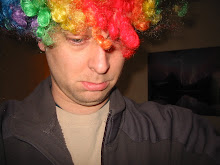Claude de Sarlat is almost universally reviled by the inhabitants of the Dordogne, as is his practice of eating monsters, but no one can deny the culinary expertise of his head chef Tirel. In fact, it was Tirel who first pioneered and perfected the incredibly delicious and now very popular practice of cooking with fairy flakes.
Popkin fairies, at one time common throughout the Dordogne Valley, were discovered by Tirel to have exceptional flavor enhancing qualities when properly prepared. To those who have tasted the dried and shaved remains of these creatures, it’s hardly necessary to convey the extraordinary effect that they have on the palate. Describing the savory essence that popkins add to nearly any recipe is a task best left by this author to the many bards who have seen fit to take it up in poem and song. Suffice to say that once experienced, one will never be able to leave the valley without a strong sense of recurring nostalgia or outright craving for just one more exquisite taste of the little buggers.
Of course the controversy surrounding their use in cooking is well known. In the Dordogne valley itself, such moralizing and hand-wringing is scoffed at and ridiculed, but further away (and particularly amongst the elves), consumption or possession of fairy flakes is viewed with disgust and usually results in the shunning of the individuals involved. Complicating the situation is the fact that some area residents now keep orcs as slaves for use in tracking popkin fairies. The orkish ability to sniff out the presence of popkins is uncanny and has led to the popkins’ increasing rarity and sky rocketing price.
The Great Druid of Marquessac has decreed that anyone determined to be hunting popkin fairies in his gardens will be publicly hanged. Even with this decree, popkin poachers and other ne’er-do-wells have been seen in ever increasing numbers in the central Dordogne. Some say that should the popkin ever disappear entirely, the Druid would wreak vengeance upon the inhabitants of the valley without mercy. In the town of Sarlat, a syndicate known as the Committee for Popkin Preservation (or CPP) was formed with the aim of protecting the popkin, but through infiltration by outside interests and due to infighting, it’s been ineffective and become somewhat of a laughingstock.
Disturbing rumors have begun to circulate that “dead zones” where magic functions oddly or not at all have been detected. These zones are said to correspond to areas where the popkin have been completely wiped out, but where they were known to previously congregate in large numbers. Many claim these rumors are purely the propaganda of the CPP. In any event, the future of the popkin looks grim if history is any guide - one need only recall the sad decline of the hoar fox.
Friday, October 8, 2010
Subscribe to:
Post Comments (Atom)







7 comments:
Creepy, good post!
I like the true/untrue 'dead zones' and the collision of different interests/viewpoints over the popkin issue. It's always good to drop the characters, or if they blunder into, an area of controversy.
Fascinating idea! I like how a little (if weird) detail about an NPC's culinary habits can lead to so many interesting repercussions to a campaign setting. I would love to involve the characters in de Sarlat's activities, starting things innocently enough (like transporting processed popkins or what not). Eventually, they would be drawn deeper into the mess and would face the horrifying realization that they are partially responsible for dead zones.
Anyway, great post!
Fantastic work, well done! I find myself wanting to experience Dordogne, much in the same way I'd like to experience Averoigne.
Brilliant! However, to prevent the loss of the fairy flakes it seems to me that an enterprising person could get a breeding pair, or maybe a few, and have a steady supply? Or maybe they can't be bred in captivity, or if they are the flakes aren't as tasty as "free range" fairies? Anyway, just a thought...
Thanks guys.
@Zanazaz: Though there are male and female Popkin fairies, and though they engage in sex for the sheer enjoyment of it, they do not reproduce sexually. How they come into existence is a great mystery, although it's one our PCs may end up deciphering.
Incidentally, the females are tastier.
There's a real fairy-tale-ish quality to this which is really cool. Great stuff!
@ze bulette: I had a feeling that maybe they didn't reproduce biologically due to their magical nature. Interesting stuff...
Post a Comment